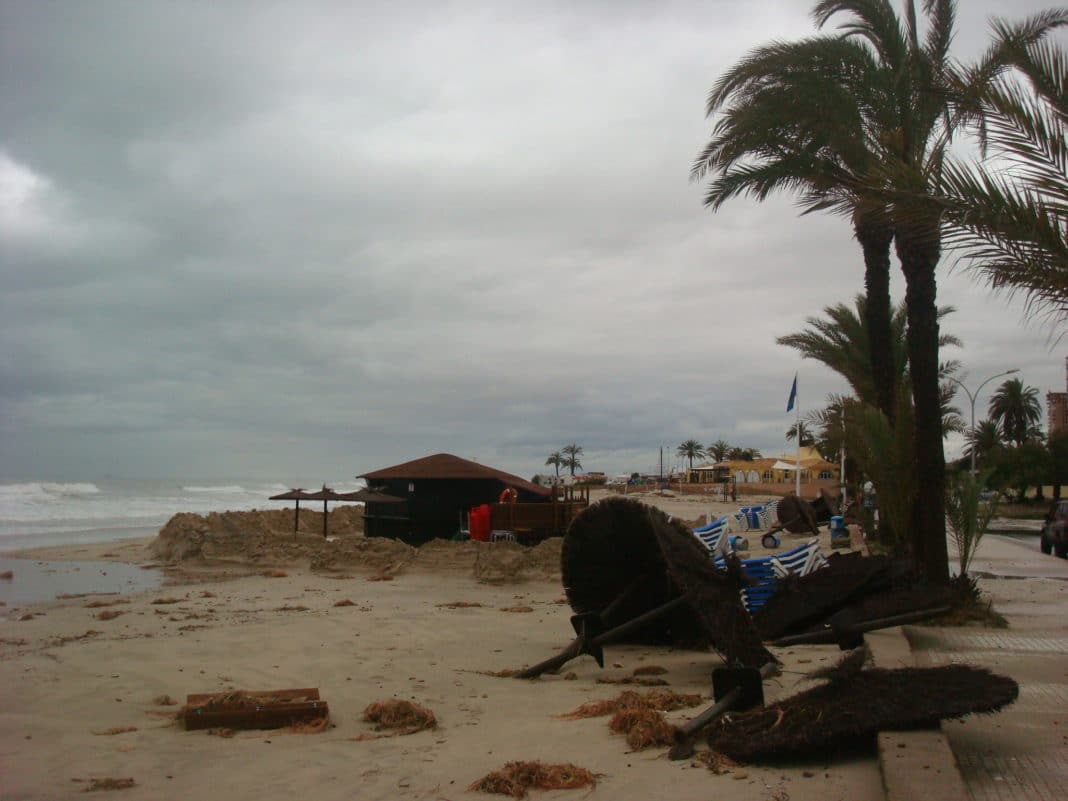A warning has been made of a possible Dana – before the end of summer – amid the observatory at Alicante-Elche Miguel Hernández airport recording the highest temperature in its history of 42.4 degrees.
The temperature of the Mediterranean sea in the southeast of the peninsula is 29 degrees – with a potential 30 degrees breaking records.
“The Mediterranean warms up more – and for a longer time – every summer.
“The progressive warming of the sea accumulates tropical and even equatorial nights – below 25 degrees – in the calendar of the Valencian and Murcian coast, a situation that can lead to a cold drop or DANA,” said head of the UA Climatology Laboratory, Jorge Olcina.
“This could cause episodes of intense rain. The risk of cold drops begins now – because if there were instability we could have a major storm – before the end of the summer,” he warned.
Temperatures hit 42.4 degrees on July 25, last recorded in 1967, when records began.
In Orihuela, 44.9 degrees was recorded, the record being 45.7 degrees on July 4, 1994, the highest in the Valencian Community; Elche, 43.7 degrees, and Novelda, 43.5 degrees.
In Alcoy (Alicante), Xàtiva and Ontinyent (Valencia) temperatures exceeded 40 degrees, according to data by the Spanish Meteorology Agency in the Valencian Community (AemetCV).
The observatory at Alicante-Elche Miguel Hernández airport recorded the highest temperature in its history with 42.4 degrees.
Mediterranean sea
Heatwaves also occur below the sea surface and are causing mass mortality events, including corals, sponges, macroalgae and plants, posidonia oceanica, from the Alboran Sea, off the coast of Almería, to the coast of the Near East, according to an international study by the Institut de Ciències del Mar (IMC-CSIC).
“The impacts of mortalities were observed between the surface and 45 metres deep, where the recorded marine heat waves were exceptional”, said Joaquim Garrabou, in the journal Global Change Biology.
“This has affected more than 90% of the Mediterranean with temperatures of more than 26ºC in some areas. “Unfortunately, the results of the work show that the Mediterranean is experiencing an acceleration of the ecological impacts associated with climate change, which poses an unprecedented threat to the health and functioning of its ecosystems”, said Cristina Linares and Bernat Hereu, from the University of Barcelona.
Image_ La Zenia beach following the 2019 storms





